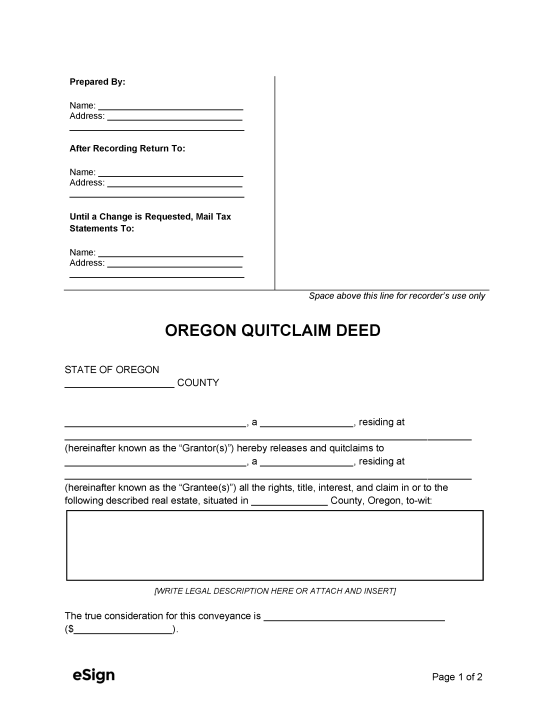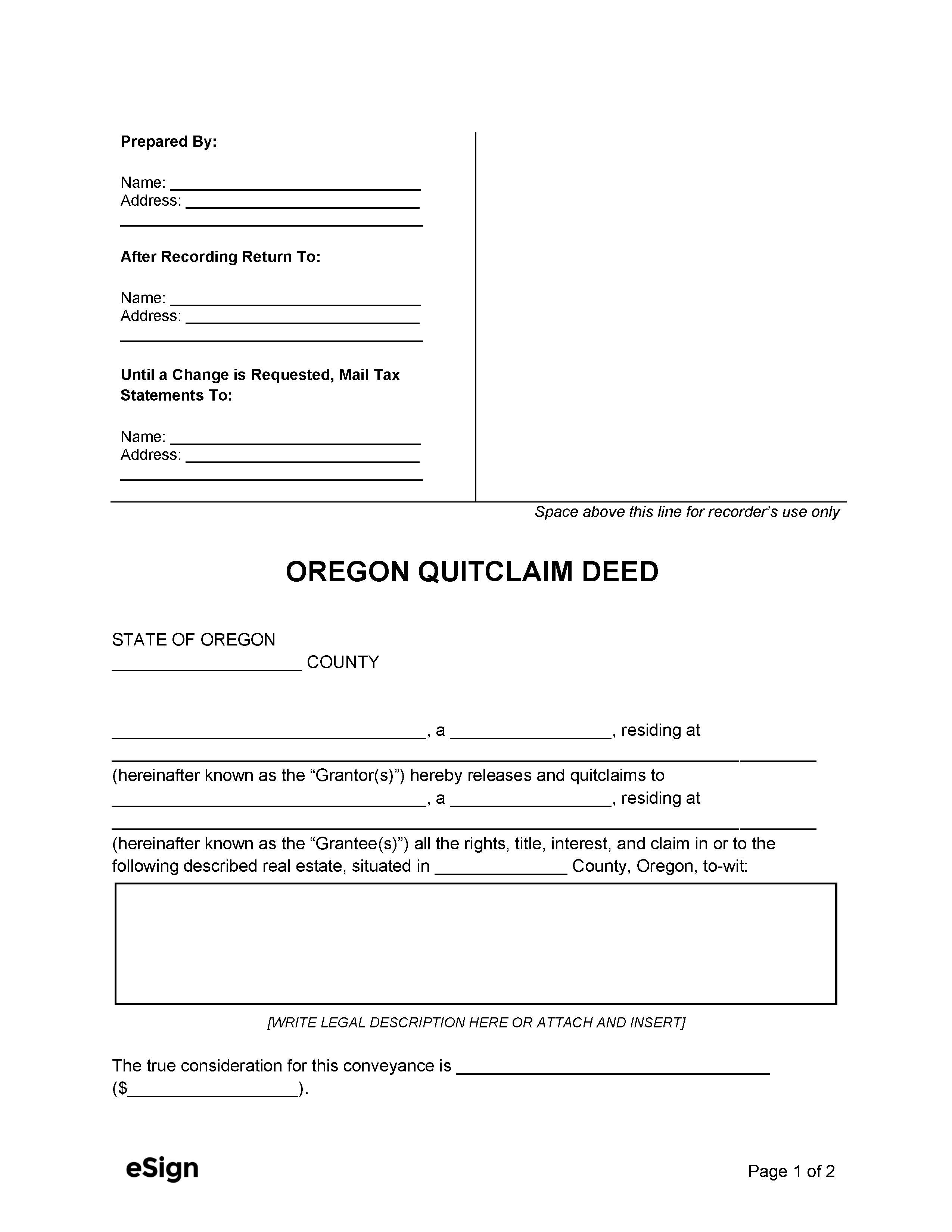Recording Details
- Signing Requirements – The deed must be signed by the grantor and notarized.[1]
- Where to Record – County Clerk[2]
- Recording Fees – $5 per page (as of this writing)[3]
Formatting Requirements
To be recorded, the deed must follow these formatting standards[4]:
- Font: At least 10-point type
- Paper:
- Not larger than 14 inches long and 8.5 inches wide
- Sufficient quality for photographic reproduction

